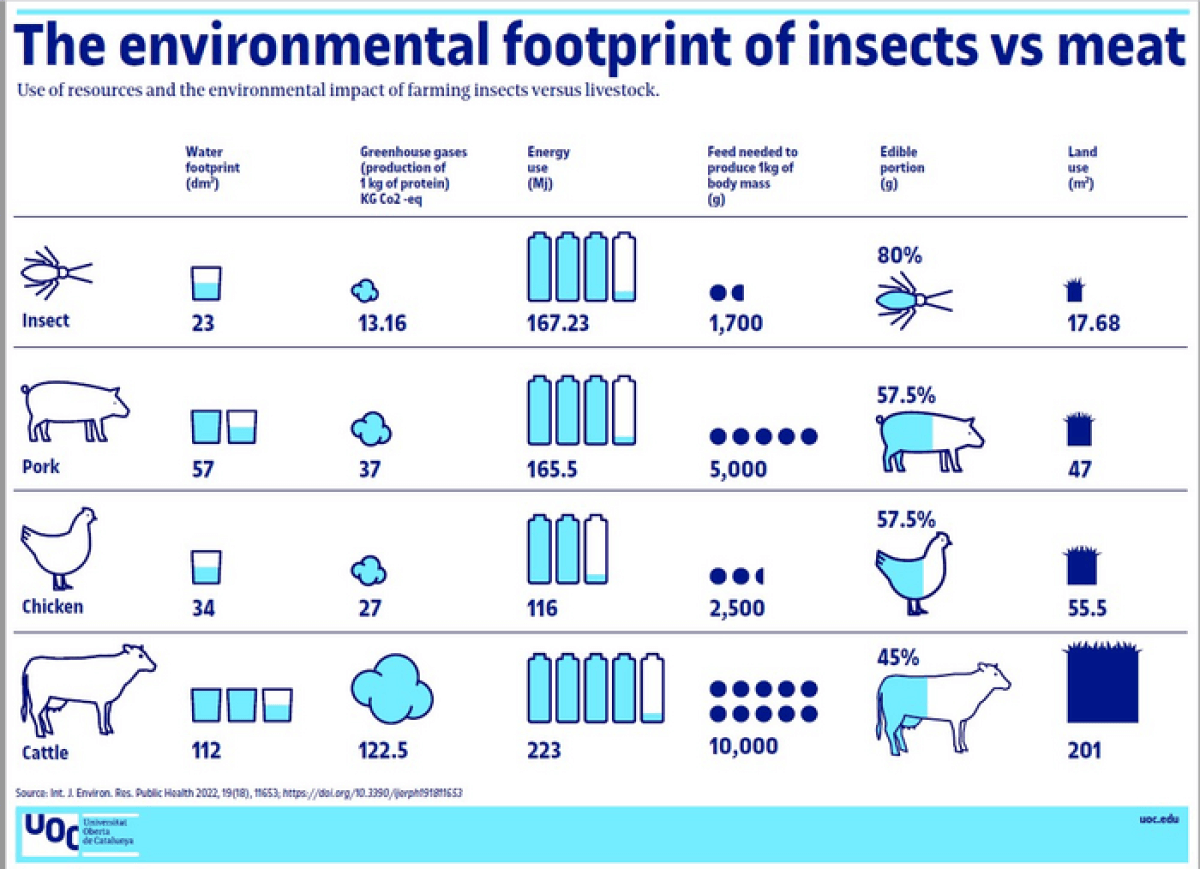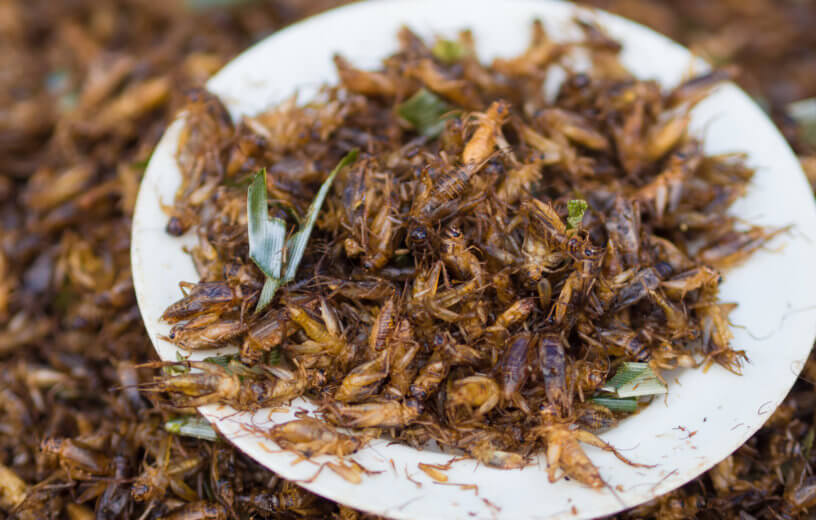BARCELONA, Spain — Most people would pass on an insect lollipop or cricket chips, but a new study suggests society will start rethinking these options when they consider the number of benefits insects bring. A team in Spain says edible insects are a sustainable source of protein with less of a carbon footprint than beef. With that in mind, their survey finds 58 percent of respondents agree bugs could become a legitimate meat alternative in the future.
Eating insects may seem like a taboo in the Western world, but it’s also been a unique delicacy for a good part of human history. From Roman emperors to farmers in ancient China, insects were a common food choice. While the practice has been largely abandoned in many countries, some in Japan, Thailand, Mexico, Peru, and parts of Africa continue to feast on these buggy delights.
At first glance, eating a bug that crawls in the dirt might seem bad for your health. However, a number of animal studies have linked eating insects to weight control, reducing blood sugar levels, decreasing cholesterol, and keeping a diverse gut microbiome. One reason for the numerous health benefits in edible insects is the fact that they are rich in unsaturated fatty acids. Research on insect food for humans has shown similar health benefits with increases in intestinal health, a reduction in systemic inflammation, and increases in blood concentrations of amino acids.
Given the number of health benefits, the Food and Agriculture Organization of the United Nations has called for increased efforts towards destigmatizing insect consumption. In the current study, researchers from Universitat Oberta de Catalunya (UOC) surveyed 1,034 people on their views about eating insects. More than four in five (86%) have never eaten an insect, with only 13 percent saying they’ve tried it at least once.
The main reason for passing on insects is disgust. The poll finds 38 percent say it grosses them out, with another 15 percent saying it’s not a part of their culture to eat bugs. Nine percent had concerns about the safety of eating insects.

Even when the study authors asked people to consider incorporating insects into their normal diet, many people rejected the idea. Only 16 percent would be open to the possibility. Dining in a restaurant offering insect dishes did not do much to sway the poll’s stance on insect consumption. Nearly three in four (73%) say they would not select this option.
Despite consistent rejection and disgust over eating insects, scientists are hopeful people will become open-minded over time. In another survey, 50 percent of respondents believe having information on insects as a sustainable food source would encourage people to eat them.
One major barrier to promoting insect food is how the dishes are prepared. Seven in 10 say they would have an easier time accepting a meal if it hid the insects’ natural shape. Only 10 percent believe insects would be more attractive to consumers if they held their natural appearance in the dish. The most popular way to eat insects appears to be having them mixed into flour, biscuits, and bars.
The findings give food scientists an idea of what factors need to be considered to make people more open-minded to trying insects in future diets. With people living longer and the world’s population expected to increase by 2050, insects may provide society with an alternative source of protein for countries where it is environmentally difficult and costly to maintain farms and livestock. According to the study authors, eating insects has the potential to improve food security and lower global hunger. Insects also have environmental benefits as they take up less space and emit fewer greenhouse gases than cattle. For example, replacing beef production with edible insect production would cut greenhouse gases by 95 percent and energy consumption by 62 percent, according to estimates.
The study is published in the International Journal of Environmental Research and Public Health.


Except, of course, for the political and financial elites.
I’m not eating bugs